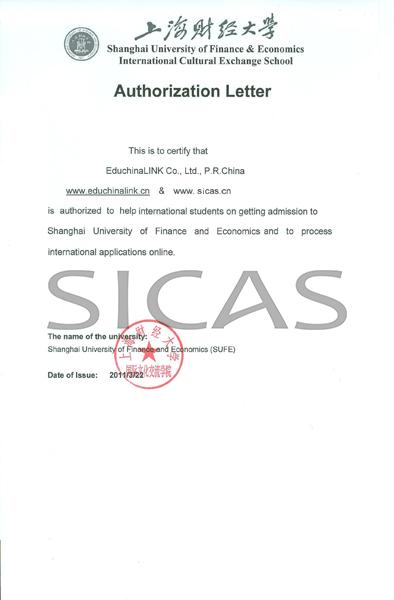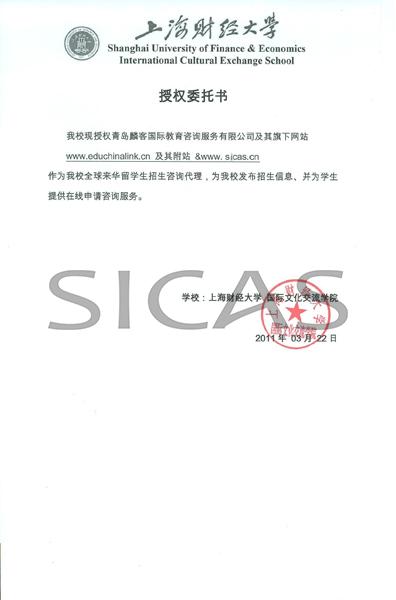

 |
School of HumanitiesEstablished in September 2000, the School of Humanities of Shanghai University of Finance and Economics (SUFE) has already formed several high quality programs including undergraduate, graduate, doctoral and post-doctoral education. Supported by the profound economics and management tradition of SUFE, it focuses on developing its own characteristics of applied arts. Now our school organizational system is: 1, Economic Philosophy Department; 2, Politics Department; 3, Chinese Language Department; 4, Economic Journalism Department; 5, Economic Sociology Department; 6, History Department; 7, Marxism Theory and Ideological Political Education Teaching Center; 8, The Humanity and Art Education Center;9,National Research Center of General Arts; 10, Modern Economic Philosophy Research Base; 11, Auction Culture Research Center; 12, Humanities Research Institute; 13, Economic Ethics Research Institute; 14, History Research Institute. The School of Humanities has 66 faculty members, among them 38 (57.6percent of the totality, and 10 have post-doctoral experiences) have PhD degrees, including 15 (23 percent of the totality)professors, and 26 (39 percent of the totality) associate professors. Professors Zhang Xiong, Lu Pinyue, and Sheng Banghe are among the School's distinguished faculty on the forefront of intellectual vitality, curiosity, and creativity among universities throughout the nation. At present, the School has 3 PhD programs (Marxist Philosophy ,Economic Philosophy and the sinofication of Marxism); 13 master's programs, (Marxist Philosophy, Ethics, Economic Philosophy, Sociology, Classical Chinese Literature and Media Management etc); 3 bachelor's programs (Economic Journalism, Economic Sociology and Teaching Chinese as a Foreign Language). The School of Humanities has more than 400 attending undergraduate students and about 120 attending master's, doctoral and post-doctoral courses. The School has offered more than 100 humanities elective courses. The School of Humanities has been guided by the philosophy of acquiring extensive knowledge in pursuit of perfection, developing its own contents as its theme, enhancing quality education and political education of all students as its primary task. The School of Humanities has insisted on emphasizing practical, pragmatic development with unique characteristics in the construction of 3 undergraduate programs. The integration of major disciplines such as arts, history, and philosophy emphasizes balance in development, and emphasizes harmony in pursuit of perfection. Great efforts focus on five combinations: combining the development of undergraduate programs with graduate programs, combining social market needs of programs with curriculum design, combining first class research with first class instruction, combining the development of the new programs and cultivation of reputable professionals, and combining creation of software and hardware. Our purpose is to build our graduate program into one of first ranking among other universities of finance and economics. Economic Journalism aims to cultivate integral, comprehensive, practical professionals in journalism. Based on expertise in journalism, and media, our program combines extensive economic knowledge as a solid foundation, with development of four aspects: journalism and theoretical economics, modern journalism theory and modern economy management, journalism as a traditional discipline and as a modern discipline, and technology and innovation of economy journalistic theory in its unique development. Economic Sociology focuses primarily on research and discovery in the fields of enterprise sociology and economic anthropology. This subject uses common principles, measurement and research methods of sociology to study economic problems, combines economic analysis of social behavior and the social analysis of economic manner, and solving economic problems through the discussion of economic behavior with the constituents of the economic system. Teaching Chinese as a Foreign Language aims to cultivate practical professionals mastering excellent application of Chinese and English with abundant commercial knowledge of Chinese and International cultures. The subject focuses on 4 aspects: the connection between Chinese and western language, the connection between Chinese and International cultures, the connection between modern language and commercial knowledge, and the connection between literature and economic behavior. This major highlights its own characteristics and advantages and aims to cultivate high-grade professional administrators, advertising planners, medium planners, (designing with a cultural idea to meet market needs), corporate culture planners, and enterprise developing planners. |








